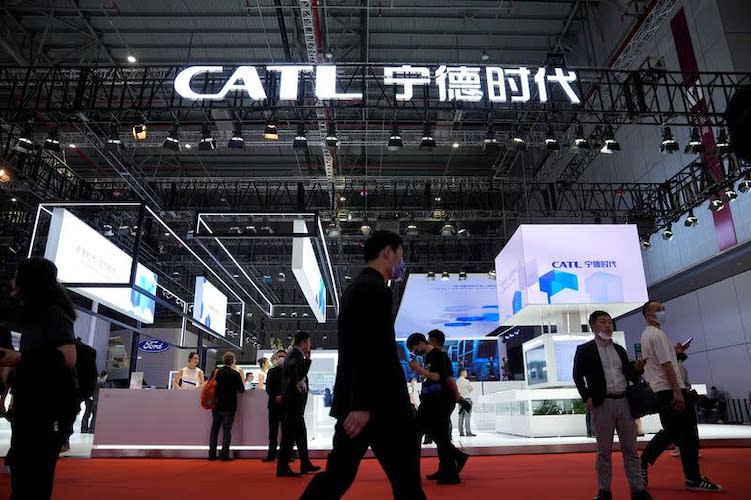Chinese battery company CATL revealed on Wednesday that it is looking to produce condensed matter batteries – for both electric vehicles and passenger airplanes.
The battery giant’s chief scientist, Wu Kai, who spoke to reports at the Shanghai auto show, said the battery could supply enough energy to power electric passenger aircraft for civil aviation use.
The battery is a type of semi-solid state product with condensed electrolyte and new anode and separator materials. It would have an energy density of 500 Watt hours per kilogram (Wh/kg), Wu said.
The company is working with unspecified partners to ensure the battery is qualified for aviation use in terms of safety and quality, Wu added.
And CATL would also be able to start mass production of the condensed matter battery for electric vehicle uses later this year, he said.
ALSO SEE:
China’s EV Stars Leaving Global Auto Rivals in Their Wake
Nio eyeing semi-solid-state batteries
Condensed matter technology is being embraced by battery makers competing to develop new materials to improve energy density of the current generation of lithium-ion batteries, which is under 300 Wh/kg.
Chinese electric vehicle (EV) maker Nio is planning to power its ET7 cars with a semi-solid state battery with 360 Wh/kg energy density developed by Beijing Welion New Energy Technology.
‘Carbon neutral factories by 2025’
CATL on Tuesday also announced its targets to achieve carbon neutrality with all its battery making plants by 2025, and across its battery value chain by 2035.
The commitments are important for CATL to meet increasing standards and regulations for the carbon footprint of its batteries in Europe and the United States as CATL expands into those markets.
Robin Zeng, CATL chairman, said last year that it is essential to reduce carbons emissions in the batteries, which account for nearly 40% of all carbon emissions produced in the cycle of battery electric vehicles.
Zeng said his company had ramped up efforts since 2019 to analyse and seek solutions for carbon reduction in the battery-making industry, saying battery makers in China, Japan and South Korea have had a significant carbon footprint.
- Reuters with additional editing by Jim Pollard
ALSO SEE:
Beijing Regulator Delays CATL’s $5 Billion Swiss GDR Listing
Xi’s Remarks on CATL ‘a Warning to Chinese EV Battery Makers’
BYD to Build $1.2 Billion EV Battery Plant in Zhengzhou
























